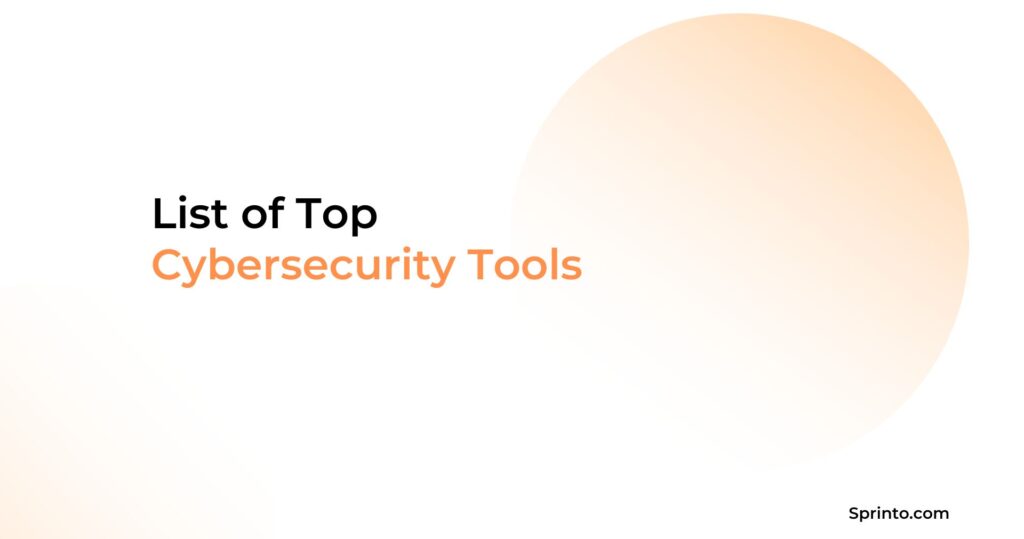How to Become a SOC Analyst? Key Responsibilities Explained
Payal Wadhwa
Sep 25, 2024
Cybersecurity threats mature faster than their countermeasures. So businesses need teams who are always watchful and aware of security threats. Appointing a skilled team of SOC analysts can go a long way in preventing cyber threats and can help relieve the mounting pressure of security concerns.
Cybersecurity jobs are already high in demand and are expected to grow at 18% in the next 5 years. So, if you’ve been meaning to carve a career as a SOC analyst, it’s a great time to do it. Here’s everything you need to know about becoming a SOC analyst.
It is different from the SOC (Service Organization Control) framework which is a voluntary standard for assessing the effectiveness of internal controls of an organization through independent audits.
TL;DR
| A SOC analyst monitors, detects, and responds to cybersecurity threats. Key responsibilities include real-time security monitoring, threat detection, incident response, and collaboration with other teams to mitigate risks. |
| To become a SOC analyst, pursue a relevant degree, gain certifications (e.g., Certified SOC Analyst, CEH), find a mentor, and gain hands-on experience, starting from entry-level positions and advancing through roles like Tier 1 to Tier 3 analysts |
| Organizations need SOC analysts to ensure continuous monitoring, mitigate threats, and maintain overall security posture. The role is in high demand, with salaries ranging from $70,000 to over $130,000 depending on experience. |
Who is a SOC analyst?
A SOC analyst is a cybersecurity professional working as a first line of defense in identifying and mitigating threats and incidents. These security specialists work towards developing security protocols and managing potential incidents to guard the information assets of the organization.
What is the job description for a SOC analyst?
A SOC analyst is a fast-paced job that requires adaptability to changing situations. The job carries a plethora of responsibilities related to surveillance, assessments, reporting and documentation.
The key responsibilities as laid down in the SOC analyst job requirements include:
1. Monitor and manage security systems in real-time
SOC analysts continuously monitor the security systems to ensure their smooth functioning and to help maintain business continuity. This involves tracking firewalls, intrusion detection systems, and reporting any unusual activity in real-time.
2. Detect, evaluates, and mitigate threats as they happen
When suspicious activity is detected, junior analysts usually report and respond to smaller threats while senior analysts handle more serious threats. Tier 3 SOC analysts work on creating a mitigation plan and containing the damage.
3. Collaborate with teams to enforce security solutions
SOC analysts are required to collaborate with incident response teams, IT operations, and compliance teams to protect the systems from malicious threats and initiate mitigation plans in case of a security event.
4. Assist with security assessments and risk evaluation
Depending upon the level of seniority and experience, SOC analysts are required to participate in or conduct security assessments. This includes vulnerability scans, reviewing policies, testing the effectiveness of security controls and other risk assessments.
5. Stay updated with upcoming threats
The job role of a SOC analyst demands keeping up with the evolving threat landscape and understanding how sophisticated the attacks have become. This helps in improving threat detection and response systems.
6. Maintain comprehensive incident documentation
An important responsibility of SOC analysts is to document incident details, learnings, findings from investigations, and remediation responses. Strong documentation helps in improving the strength of established security controls.
How to become a SOC analyst?
For SOC analyst qualification, a bachelor’s degree in computer science or a related field is required, along with training programs from reputable institutions for certification and relevant experience to advance in the career.
Here are 4 steps to become a SOC analyst:
1. Get a degree
A bachelor’s degree in computer science, computer engineering, information security or a related field is a good start.
2. Bag certifications
After the completion of degree, explore training programs by credible institutions to become a Certified SOC Analyst (CSA). Other certifications that can prove to be stepping stones in the journey include Certified Ethical Hacker (CEH), CompTIA Security, GIAC Certified Intrusion Analyst etc. We’ll explore these in detail in the later part of the blog.
3. Find a mentor and hone your skills
A successful SOC analyst excels in technical expertise related to security technologies and soft skills like proactive problem-solving and effective communication. Finding a mentor can help you refine these abilities and accelerate your growth in the field.
4. Gain experience
Start with an entry-level position like security analyst or network administrator. Gradually, hone your skills and move your way up.
- Tier 1 SOC analysts: Tier 1 analysts are responsible for monitoring security alerts in real-time, analyzing the threats involved and escalating the incidents to appropriate teams for remediation. These require basic technical skills, administrative skills, and analytical skills for proactive identification and reporting of incidents.
- Tier 2 SOC analyst: Tier 2 analysts are equipped with more experience, knowledge and additional training. These analysts are responsible for investigating security incidents, anlayzing root cause, and resolving incidents. Tier 2 analysts also deliver feedback for further improvements.
- Tier 3 SOC analyst: These senior analysts are the most experienced in the hierarchy. They typically handle critical security issues that cannot be solved by tier 2 analysts. This can involve accessing logs, network forensics etc. and also constitutes strategy development for security and risk management.
- SOC Engineer: A SOC engineer is responsible for maintenance of security tools and infrastructure within the Security Operations Center (SOC). Their role revolves around ensuring technical aspects of cybersecurity defenses.
- SOC Manager: A SOC manager is responsible for overseeing strategy and operations of the Security Operations Center. They usually come with 10-20 years of experience and the role is inclined towards leadership and management.
Also, check out the key functions of SOC
SOC analyst certification process
There are a number of certification options in the market. The usual course of action is to complete the study program, pass an exam and hone the skills required under the program.
Here are the most popular SOC analyst certification choices:

1. Certified SOC analyst by EC council
To begin with the SOC-analyst-in-making journey, start by bagging the CSA certification. This program prepares you with the fundamentals along with entry-level and intermediate-level operations.
2. Certified Ethical Hacker (CEH)
In order to avoid exploitation by attackers, ethical hacking comes handy in detecting vulnerabilities in advance and fixing them. This certification helps train you with ethical hacking tactics to scan your own computer systems and spot weaknesses. If you’d like to build a solid foundation in penetration testing, this is a must-have.
3. CompTIA Security
This certification can be a prerequisite for a number of cyber security roles as it covers the core skills required to perform security functions. The wide range of topics covered include threats, attacks, vulnerabilities, technologies and tools, risk management, incident response etc.
4. Certified in Risk and Information Systems Control (CRISC)
Land a lucrative career with CRISC making you adept in IT risk management. The certification prepares you with IT risk assessment, risk reporting, control monitoring, corporate governance and other related topics.
5. GIAC Certified Incident Handler
In order to secure a well-compensated position as an incident handler, system administrator or similar roles, GCIH can be a valuable credential. It covers topics such as incident handling, malware analysis, hacker tools, network forensic analysis etc.
Why do organizations need a SOC analyst?
In 2021, the global security operations market was valued at $5.39 billion and is expected to grow at a CAGR of 10.2% between 2022-2030. Cyber attacks have been a major driver for the demand of SOC analysts. Having a SOC analyst:
- Ensures continuous monitoring of security networks, systems and operations thereby reducing downtime or business disruptions
- Helps prevent or minimize the impact of a security threat by initiating quick mitigation actions
- Saves the organization from financial burden caused by data breaches
- Aids in improving the overall security stance of the organization
- Enables the organization to implement the necessary security controls
How much does a SOC Analyst earn?
Based on experience and skills, a SOC analyst can earn between $70000 and more than $130000 in the US. The average SOC analyst salary is around $97616.
Here’s a breakdown:
- Entry-level positions with 0-2 years of experience can earn about $72624 for a year
- Mid-level positions with 2-5 years of experience can earn about $97,000 annually
- Senior-level positions with more than 5 years of experience can make up to $136,706 annually
In the UK, the average salary is £50,000 a year with the most experienced analysts getting £65,000 a year.In India, the average SOC analyst salary Rs 5, 36,000 per year. Note that this is for entry-level positions.
What skills must a SOC analyst have?
Detecting, investigating, and responding to threats requires technical expertise along with an attitude that fosters collaborative culture. Let’s dig a little deeper.
Technical Skills
Intrusion detection and network defense
Network defense skills require understanding of the network traffic, malware detection and analysis, firewall configurations and management etc. in order to protect information assets from anomalies.
Ethical hacking
Ethical hacking involves testing the strength of security controls against tactics that may be used by attackers. It is an essential skill that helps with vulnerability assessments, penetration testing and identifying other weaknesses in the security systems.
Knowledge of security tools
A SOC analyst must know how to leverage security information, SIEM, forensic analysis, network monitoring and other tools that help take decisive actions against threats.
Incident management
SOC analysts are first responders to security incidents. This skill helps train SOC analysts on threat detection, damage mitigation, and initiating remediation and restoration protocol.
Computer forensics
Computer forensics aims at teaching how to collect and analyze evidence from different sources when investigating security incidents. This helps in identifying and documenting root causes of security threats.
Risk Management
A SOC analyst must understand potential risk and impact of security threats and incidents on the organization. This is necessary for risk prioritization and implementation of the mitigation strategy with urgency and appropriate response action.
Soft Skills
Problem-solving
In order to respond to threats in real-time, strong problem-solving skills are required. A SOC analyst must be patient enough to break down complex problems into smaller manageable tasks to effectively manage security incidents.
Analytical thinking
Analytical thinking helps identify compromised indicators, understand the severity of a problem and chalk out potential solutions systematically.
Communication skills
Communication skills are necessary for them to explain the technical findings to executive management and non-technical stakeholders and discuss areas for improvement.
The SOC team and Sprinto collaboration
The demand for both entry-level SOC analysts and experienced seniors is high in organizations because of increasing security concerns. SOC analysts have already established their footing in various industries like healthcare, finance, government agencies etc. as SOC for cybersecurity defense players.
The job of a security operations team becomes easy when it is supported with the right tools and resources. A compliance automation solution like Sprinto can help SOC teams monitor security controls, create and rollout infosec policies, and expedite the compliance certification process.
Ready to get started? Speak to our experts today.
FAQs
What is the difference between a SOC analyst and a security analyst?
A SOC analyst specifically works for the Security Operations Center (SOC) and is involved in real-time monitoring and managing of security threats. Security analysts on the other hand are responsible for a broader set of functions and oversee vulnerabilities and risks while implementing the required security measures org-wide.
Are coding skills required for SOC analysts’ jobs?
For entry-level positions, coding skills are not required. But having knowledge of programming languages is required for advanced-level roles and senior positions.
What are the challenges of a SOC analyst?
The security alerts can be too many and may nudge you 24/7. Next, the constantly evolving threat landscape demands actively staying up-to-date. Understaffed teams, limited security budgets and compliance tasks can be other challenges.


Use Sprinto to centralize security compliance management – so nothing
gets in the way of your moving up and winning big.


























